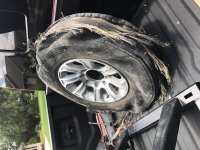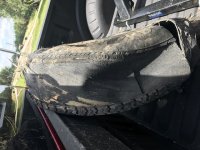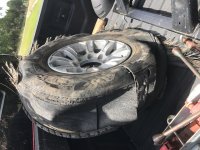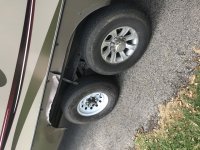I agree that it appears that some tires may not have the same quality as others.
BUT
The solution is not to complain while sitting around the campfire or with posts on an RV forum. If you really want to impact tire quality you need to establish the facts that a specific batch of tires was actually defective. Simply having a tire fail is no more proof the tire was defective than pointing to a dead person and claim there was a murder.
I do not know how having a tire fail with a run low flex failure because the air leaked out while the vehicle continued down the road is the "fault" of the tire or tire company. Air loss does not always involve the tire as in the case of a puncture or driving over a curb or across a deep pot hole. Why would you blame the tire if the bolt in valve was not properly installed as covered in
THIS post, so there was a leak around the valve body. If you have a leaking valve core as I identified in
THIS post why would you blame the tire quality?
Hopefully you now agree that it is important to understand the "why" a tire failed if you want to have a hope of addressing the cause of the failure.
Belt/tread separations are different if you care about making an accurate claim of questionable quality. The best step is to file a complaint with NHTSA. You can still file a warranty claim with the tire dealer and write a letter to the rV company if that makes you feel better. You can even let them know you have filed a complaint with NHTSA so they know you are serious.
You MUST provide the full DOT serial to NHTSA to have any chance of having the complaint taken seriously as without the S/N they can not properly identify if there is a series of tires from the same batch so the failure rate is higher than normal. NHTSA can accumulate the actionable complaints and if there is sufficient number they may start an investigation. If that finds probable cause they might take the next step and there may even be a recall.
I have never heard os a recall being made because people wrote about their problems on an RV forum.
There is no such thing as a "fail proof" tire as any tire can be made to fail in less than 15 minutes, so again simply having a failure is not really "proof" of low quality.




